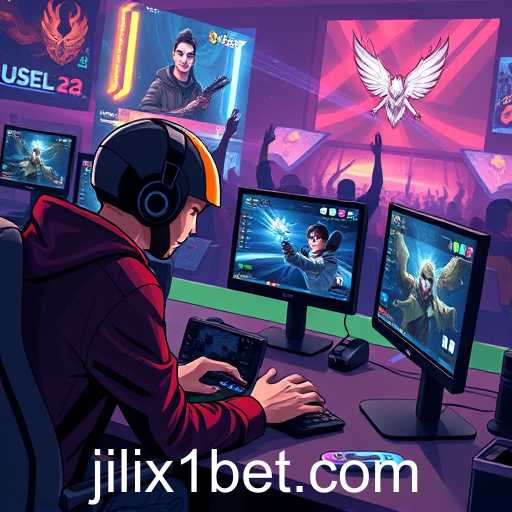In recent years, online gaming has evolved from a niche hobby to a mainstream cultural phenomenon, and this transformation is epitomized by the growth and development of gaming communities globally. As of 2025, these communities are not just platforms for playing games; they have become vital social hubs for millions of players around the world. A key player in this digital landscape is the platform known as 'jilix1', which has emerged as a beacon for gamers seeking interaction, competition, and camaraderie.
The shift has been largely driven by advancements in technology, allowing for more immersive and interactive gaming experiences. High-speed internet and powerful gaming consoles have made it possible for players to connect with others across the globe in real-time. This connectivity has fostered a sense of community that transcends geographical boundaries, enabling players to form friendships and alliances that might not have been possible in a pre-digital era.
Gamers are no longer just passive consumers of content; they are creators and influencers. Platforms like 'jilix1' empower users to share gameplay videos, create tutorials, and participate in forums that discuss strategies, updates, and gaming news. These platforms have also become economic powerhouses, supporting an ecosystem of professional gamers, streamers, and content creators who earn livelihoods through sponsorships, advertising revenue, and fan donations.
However, the rise of online gaming communities is not without its challenges. Issues such as cyberbullying, online harassment, and data privacy continue to be significant concerns within these digital spaces. The industry is under pressure to implement robust measures to protect its users while fostering an inclusive and welcoming environment for players of all backgrounds.
Despite these challenges, the future of online gaming communities looks promising. As technology continues to advance, we can expect even more innovative ways for gamers to connect and engage. Virtual reality, augmented reality, and AI-driven platforms may redefine how these communities interact, making them even more integral to our social fabric. 'Jilix1' and similar platforms are at the forefront of this evolution, hinting at a future where gaming is not just a pastime but a key component of global culture.








